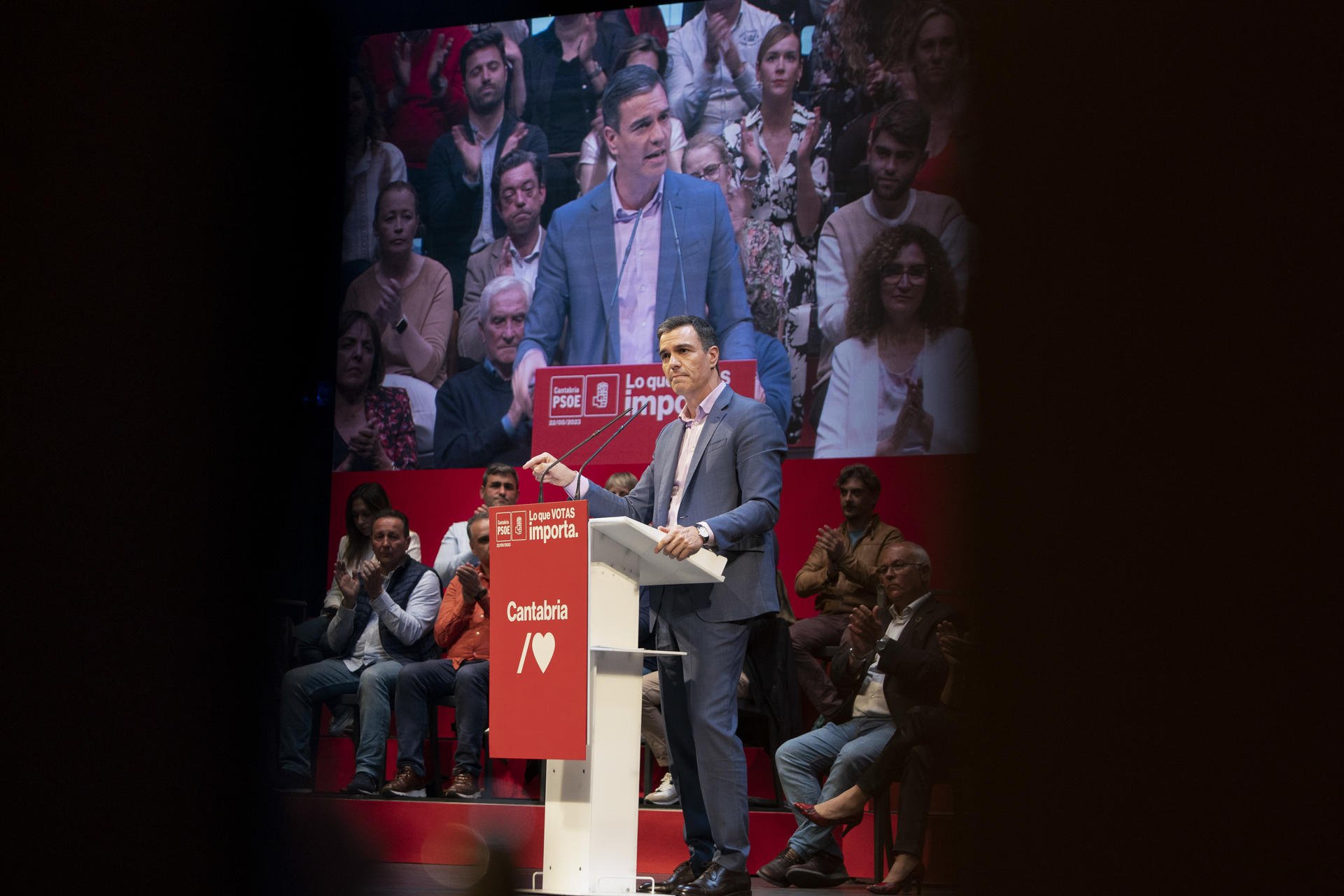The governing Spanish Socialist Workers Party (PSOE) has decided to ignore the political conflict between Catalonia and Spain in its electoral manifesto, and has deleted any mention of the dialogue table between the Catalan and Spanish governments. This Friday, the Spanish prime minister, Pedro Sánchez, assured that "coexistence and democratic quality" would become basic pillars of the next legislature if he remains in the Spanish executive. In the presentation of the party's programme, however, no measures for Catalonia, nor for the resolution of the political conflict with the Spanish state, were mentioned.
The electoral programme of the PSOE, a comprehensive, 270-page document, fails to make any mention of how the conflict between Catalonia and Spain can be resolved. The only thing the document does is take pride in having achieved "coexistence" in the country and that the political scenario is different from that of 2017. It also points to the PP as guilty of provoking the independence process and of the Unilateral Declaration of Independence made that year. "The situation of rupture that existed five years ago has been overcome and the number of people opposed to the constitutional framework has decreased abruptly", notes the party programme, which aims to "consolidate territorial cohesion as a structural principle of all political action”. The explicit proposals made by the Socialists only offer some generic decentralization promises, such as a "process of deconcentration of headquarters of state and regional public entities". Nor does the programme contain any reference to other key Catalan issues such as the language immersion question or the deficit in the state's infrastructure investments in Catalonia.
Sumar buries the referendum and rewinds to the Statute
The PSOE has presented its electoral program for the July 23rd general election the day after Sumar, the party led by Yolanda Díaz and the only possible party that Pedro Sánchez might be able to ally with the day after the election to remain in government. Diáz, current Spanish second deputy PM, has also decided to bury the referendum, no matter how much her Catalan affiliates the Comuns insist that they will go to Madrid to defend a consultation that will ask Catalans about the independence of their country.
Yolanda Díaz not only affirmed on Thursday that the referendum "is not on the table", but presented an electoral programme that turns back the clock and talks again about the Statute of Autonomy which was severely trimmed down by the Constitutional Court in 2010. "Catalonia is the only community that is governed by a Statute that has not been voted on by citizens and is not the result of an agreement between governments", points out its electoral programme, also arguing for a vote on the result of an agreement between Catalonia and Spain at a dialogue table.
The People's Party has also, this Friday, made clear its desire to quash any talk about a dialogue table with Catalonia. In fact, leader Alberto Núñez Feijóo had offered some lukewarm support for continuing the current dialogue table in a media interview, saying that he had "no interest in going against a table if it is constituted". But within hours, his own party clarified hs statements: the table "will be deactivated" if the PP removes Pedro Sánchez from the Moncloa government palace, the party said.
In three years, just three meetings and little progress
The dialogue table to resolve the political conflict between Spain and Catalonia, which Pedro Sánchez accepted in January 2020 as a condition laid down by pro-independence ERC to allow the Socialist leader to form a new Spanish government, only met three times in three and a half years: in February 2020, September 2021, and July 2022. The Spanish government exploited the fact that it had theoretically entered into "dialogue" to gain some soft international support, and yet at the actual meetings - less than one per year - the Sánchez executive vetoed any discussion at all of the main goals of the Catalan government: an amnesty, recognition of the possibility of self-determination, and a new independence referendum.
The last meeting, in July 2022, passed two motions - one on the dejudicialization of the conflict and another, peripheral, on measures of support for the Catalan language - but both were vague and, almost a year later, neither has led to any actual changes. Since then, members of the Pedro Sánchez cabinet have expressed the view that "dialogue has happened" and is no longer required. The independence movement is currently politically divided, and yet the number of Catalans who say they want their country to be independent of Spain has not dropped below 40% in CEO surveys.

